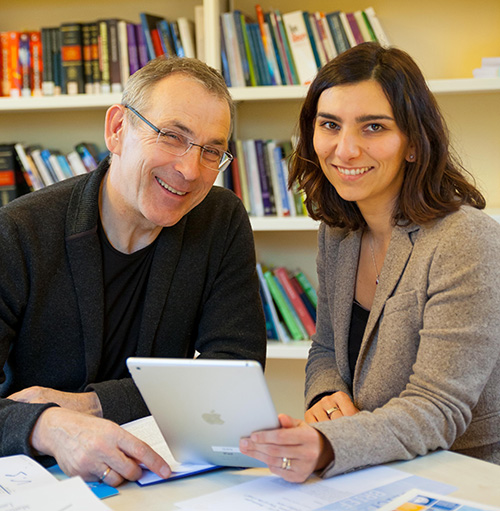by Ilaria Conti (FSR)
Target number one: “decarbonisation”
The latest European Gas Regulatory Forum, which took place in Madrid on 16-17 October 2018, stood out from the previous ones. Time will tell if, to some extent, it will be remembered as historic.
It was the Madrid Forum where the focus of discussion shifted from “gas” to “gases” – plural.
It was also the Madrid Forum where, for the first time, the electricity sector was represented and invited to discuss on equal footing – a very first practical implementation test for “sector coupling”.
But, above all, it was the Madrid Forum where the word “decarbonisation” vehemently entered and steered the debate over the course of the two days – to remain, probably forever.
Furthermore, an additional – yet not marginal – issue was brought to the table. Decarbonisation will not only mean reducing CO2, but also methane emissions. Methane leakage from all gas transported worldwide is around 3% – a pretty serious issue which might compromise climate policy efforts and that the EU Commission is planning to address in a joint effort between DG Energy, DG Climate and DG Environment. Just two days before the Madrid Forum, a FSR-GIE workshop addressed this issue.
From (conventional) gas to (renewable) gases
Abating CO2 emissions and “greening” the energy mix has been a firm European energy policy target for the last 15 years. In a relatively short time, the EU electricity system went through a deep (and ongoing) transformation to accept and integrate (not effortlessly) an increasing share of energy produced from renewable sources.
Today’s news is that, in the next years, this is due to become a target also for the EU gas system.
The European Commission at the XXXIst Madrid Forum has indeed renewed its serious commitment to pursuing the ambitious post-2020 targets outlined in the revised Renewable Energy Directive and included in the 2016’s Clean Energy for all European citizens package.
Traditional (or conventional) gas will need to make space for gas produced from renewable sources and to other energy carriers originating from processes such as anaerobic digestion, electrolysis or methanation: biogas, biomethane, green hydrogen and synthetic natural gas (SNC).

Source: European Commission, October 2018
This did not take the FSR by surprise, as we dedicated a Topic of the Month , a workshop and a Policy Brief to “Renewable gas” this year.
Until recently, the share of so-called renewable gas (mostly biogas) in the EU gas market has been very limited (around 4%) but the estimated potential for renewable or “low carbon” gases are impressive. Discussions will now need to go more in-depth on existing technical limitations and how to overcome them, cost-benefit analysis and, last but not least, on how to regulate (and support) this blooming potential.
Conclusions: new role for gas(es), hence new challenges
Decarbonisation is and will be the driving ratio for future EU energy policy initiatives – so much so that it was declared a “no-regret option in the Forum conclusions.
The shift to these “new targets” for the gas system implies a re-assessment of the future role of gas (both renewable and conventional) in the EU energy mix. Last year, several studies (EU Commission’s Quo Vadis, CEER’s FROG study – just to mention two of those) investigated the issue and provided possible – sometimes more realistic, sometimes less – development scenarios for the EU gas market (see our Topic of the month on the EU Gas market’s “snake’s dilemma”).
The discussion on the role of gas quickly moved from “Gas as a back-up fuel?” to “Gas as a destination fuel?” and now, “Gas as a decarbonised fuel”.
One year, a few studies and several workshops later, my main takeaways are the following:
- Decarbonisation calls for the coupling or integration of the gas sector with electricity and other sectors (more details on this will come in the 2nd instalment of this Topic of the Month)
- Integration with other sectors will be welcome and might lead to win-win outcomes. Transport is an obvious sector to be increasingly integrated with gas and electricity.
- However, electrification is not the right answer to achieve decarbonisation and an all-electric system is less efficient than an integrated one (estimated savings for Europe ranging from 94 to 138 billion euros per year according to Poyry and Ecofys studies)
- Power-to-Gas technology currently seems to be the preferred or most viable instrument to achieve decarbonisation via sector coupling (see our new Policy Brief on this topic).
As we turn a new page in the history of the European Gas market, all stakeholders should assess what the existing challenges are and how to overcome them. A lesson can certainly be taken from the electricity sector about the potential threats of embracing the “green wave” with too much enthusiasm and too little quantitative analysis on technical limits, costs and opportunities. On the other hand, meeting the renewable and decarbonisation targets is essential and will ensure a more sustainable future for all European citizens. The big challenge in the short term will consist in making the right regulatory and economic choices so that the efforts to reach those targets are also made socially sustainable.







